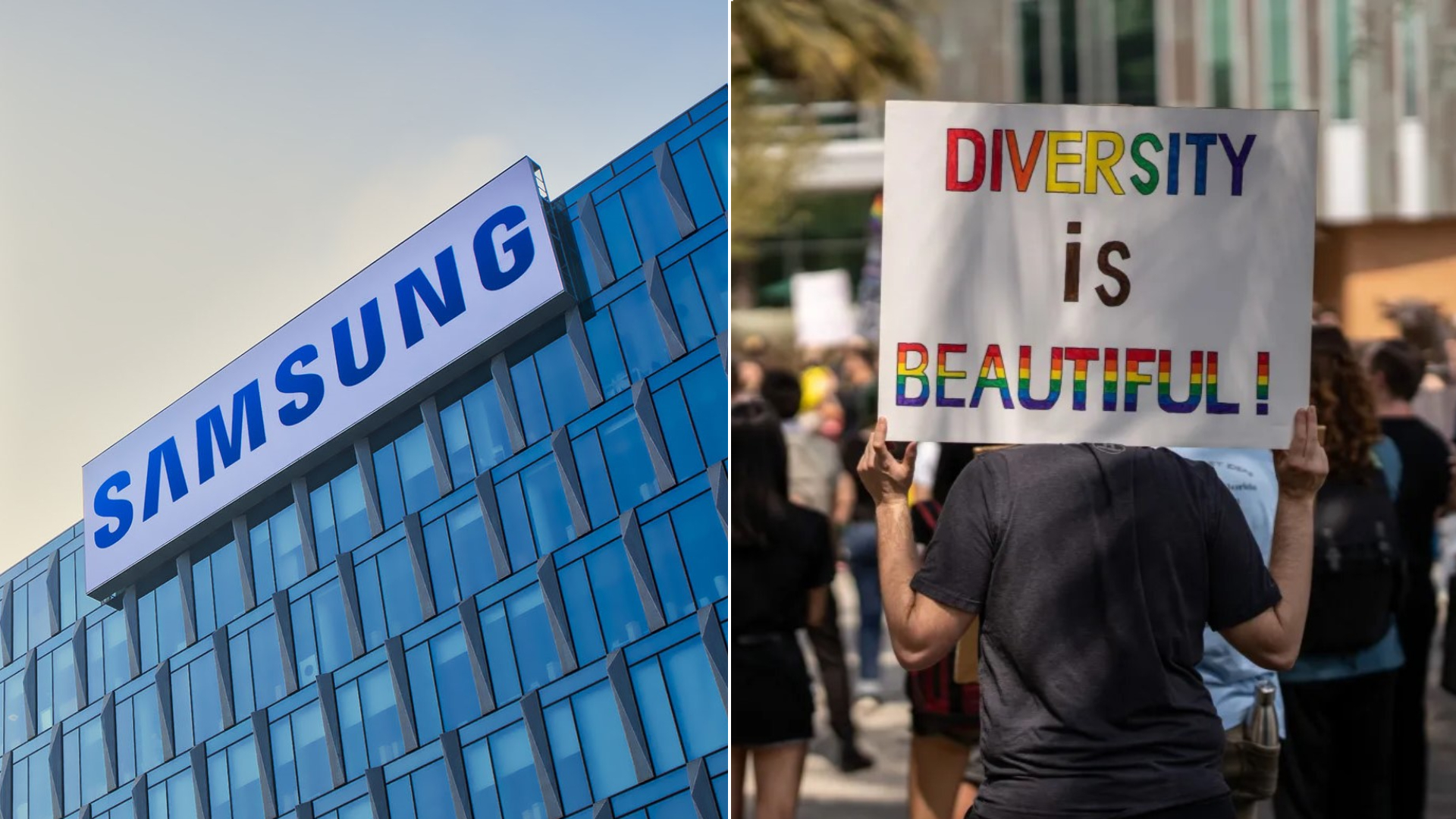
Samsung, the South Korean tech giant, has sparked a wave of discussions across the corporate world by deciding to reject Diversity, Equity, and Inclusion (DEI) initiatives in favor of a more traditional approach to hiring and workforce development. The company’s decision marks a significant departure from the growing trend in corporate America and beyond, where many companies are prioritizing DEI as a way to foster inclusivity and break down barriers for underrepresented groups.
DEI initiatives have gained widespread traction in recent years, particularly in the tech and entertainment sectors. Many large corporations, including Apple, Google, and Microsoft, have embraced DEI policies, arguing that diverse teams are more innovative, productive, and better equipped to meet the challenges of a globalized economy. These initiatives often include setting specific diversity targets in hiring, offering training programs to address unconscious biases, and creating support networks for marginalized communities within the workplace.
However, Samsung’s leadership has chosen a different path. The company has stated that it will focus on hiring based on merit and qualifications rather than diversity quotas or initiatives. In an official statement, Samsung emphasized that while the company values diversity, it believes in creating an environment where individuals are hired for their skills and contributions, not their demographic background.
This decision has already ignited significant debate within the business community. Supporters of Samsung’s approach argue that focusing on merit allows companies to hire the most qualified individuals, ensuring that talent and performance are the top priorities. They claim that diversity and inclusion should naturally evolve from a focus on talent, rather than being artificially enforced through quotas and policies. By rejecting DEI, Samsung aims to avoid what some critics call “reverse discrimination,” where individuals are hired or promoted based on their identity rather than their abilities.
Samsung’s decision also reflects its global approach to business. As a multinational corporation with operations in multiple countries, Samsung operates in a wide variety of cultural and political environments. In some countries, the conversation around DEI is not as prominent, and policies may not be as deeply ingrained in the business culture. By avoiding a one-size-fits-all DEI approach, Samsung ensures that its hiring policies remain flexible and adaptable to the unique needs of each market. The company has made it clear that it values talent from all backgrounds but does not believe in setting quotas or enforcing strict diversity goals.
However, Samsung’s stance has not been without its critics. Many advocates for DEI argue that without these policies, companies risk perpetuating existing inequalities. The tech industry, in particular, has long struggled with a lack of diversity, especially in leadership roles. Women, racial minorities, and LGBTQ+ individuals have historically been underrepresented in tech, and many see DEI as a necessary step in leveling the playing field. Without strong DEI policies, critics argue that these groups will continue to be excluded from opportunities, and companies will miss out on the valuable perspectives they bring.
Supporters of DEI initiatives point to research that shows how diverse teams perform better and make more innovative decisions. According to studies, a diverse workforce can improve creativity, problem-solving, and overall business performance by bringing a variety of perspectives to the table. In industries like tech, where innovation is key, having a diverse team is often seen as a competitive advantage. Critics of Samsung’s decision worry that by not prioritizing DEI, the company is missing out on the benefits of diversity and risking stagnation.
Some also argue that rejecting DEI policies could hurt Samsung’s public image, especially in markets like the United States, where social justice and inclusion have become central issues in both business and politics. As public opinion increasingly favors inclusivity, companies that do not actively pursue diversity may find themselves out of step with changing cultural expectations.
Despite these concerns, Samsung’s leadership has remained firm in its decision. The company maintains that its approach will allow it to focus on hiring the best talent from a broad pool of candidates, without being constrained by quotas or diversity requirements. The company’s commitment to merit-based hiring means that every candidate, regardless of their background, will be judged on their skills, qualifications, and potential to contribute to the company’s success.
Samsung’s decision to reject DEI policies may also signal a shift in how large corporations view the balance between social responsibility and business performance. While many companies have embraced DEI as a way to improve their corporate cultures and appeal to a broader customer base, Samsung’s stance highlights a growing skepticism about the effectiveness of these initiatives in achieving meaningful change. For some, the belief is that true diversity and inclusion can only be achieved when individuals are valued for their contributions, not their identities.
In conclusion, Samsung’s rejection of DEI policies has stirred a debate that is likely to continue for some time. While the company’s commitment to merit-based hiring aligns with its global business strategy, it also raises important questions about the role of diversity in today’s workplace. As other companies continue to explore the benefits and challenges of DEI, Samsung’s decision serves as a reminder that there is no one-size-fits-all approach to managing talent and fostering inclusive environments. The long-term impact of this decision on Samsung’s growth, innovation, and corporate reputation remains to be seen, but it undoubtedly places the company at the center of one of the most important conversations in the modern business world.
NOTE: This is SATIRE, It’s Not TRUE